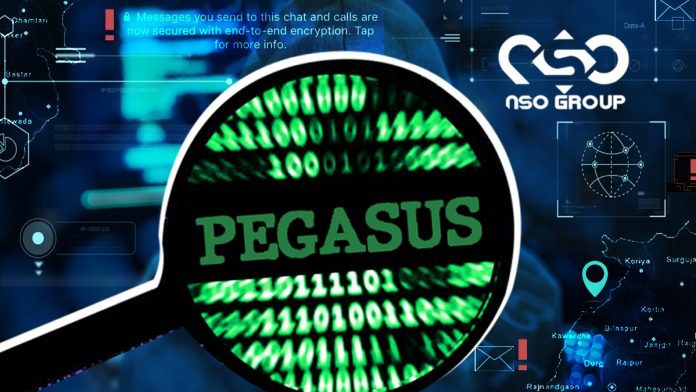Pegasus Case, Set-up To Discredit Moroccan Services – E-paper –
The Pegasus case is a set-up by one or more services to discredit, through a massive press campaign, other services, in this case the Moroccan ones, affirms the e-paper “le360.ma”. This case, in which we want to make Morocco the main protagonist and a world power in the field of digital intelligence, is one of the manifestations of the deviation of services, especially those of the countries of the North, underlines the paper in an article by Mohammed Boudarham. Entitled “The Pegasus Case: The End of a World”, the author deems that “things have changed a lot. Services are not what they used to be and their own ethics have almost disappeared.” The the performance of Moroccan counter-espionage services, whose professionalism is recognized worldwide, has, in recent times, considerably weakened the activity of foreign intelligence in Morocco. Moroccan “stringers” in these services have been gradually neutralized in recent years, he writes. The collective hysteria on the name and career of the Director General of National Police and of Territorial Surveillance Abdellatif Hammouchi, “burned at a media stake maintained by journalistic indignity”, is understandable only from this angle, he notes. “At the international level, especially the African one, these same hostile services, now limited in their activities, are very hampered by the agility, efficiency and prediction of the Moroccan intelligence services”, says Boudarham, recalling that the Moroccans have become a key player in international intelligence, where they score points every day, whether in the fight against terrorism, religious radicalism, drug trafficking or human trafficking. “The room for maneuver of these services in Africa has been considerably reduced. Their methods are outdated, their correspondents reported, their technique obsolete, they are now facing a new reality. The more Africa emancipates itself, becomes aware of itself, takes charge of its destiny, the more the manipulations of the past seem counter-productive, outdated and sterile”, he insists. Faced with this coagulated neocolonialist vision by European services, Morocco, a “major continental player”, presents a credible, productive and endogenous African policy, he underlines, citing in this context the implementation of a successful policy in multiple fields such as telecommunication, banking, insurance, real estate, agriculture, urban planning, services and new energy. “Morocco’s success in Africa comes at a cost. The Pegasus case, it seems, is an addition,” notes the author. “Until when are they going to use the question of the territorial integrity of the Kingdom in disgraceful tampering to neutralize all of northern Africa?” He wonders. It took the US to recognize Morocco’s full sovereignty over its Sahara for the European house of cards to collapse. France, Spain and Germany then stepped up the game with a “historic” delay. The jackpot was won by the Americans, in front of dumbfounded Europeans, writes Boudarham. “The stability of the Moroccan monarchy poses a problem. Not only it is stable, but its emergence is starting to seriously hamper the spaces where the neocolonial status quo no longer holds”, explains Boudarham. “This is the new equation that the Pegasus case had to answer to,” he said, believing that Pegasus failed because the actors of its implementation are not credible. For the author, Amnesty International has long lost its credibility, because “it abandoned all readable scientific methodology in its approach”, while “Forbiden Stories” is caricatured, its leadership is wacky, corrupt and shady, and its role as a post office box is plainly comical. But, where the comedy takes all its sense, he goes on, is when press syndication comes into play, denouncing the French daily “Le Monde”, which “did not check the data. No serious investigation. It has subcontracted this essential activity to third parties. It cannot produce any proof of what It is claiming”.

